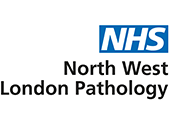Quality Management
Applying human factors to improve individual and team performance in biomedical sciences
Quality Management
Applying human factors to improve individual and team performance in biomedical sciences
1pm – 1.30pm BST, 22 September 2025 ‐ 30 mins
Quality Management
Abstract
As humans we are fallible and make mistakes both at work and outside it on a regular basis. 1 in 20 hospital admissions has some form of error, and 1 in 20 of those (so 1:400 admissions) has a serious error. Understanding, recognising and applying human factors (HF) in clinical and laboratory practice can help reduce the chances of these and other errors as well as enhancing team working and personal performance HF is gaining ever increasing traction and profile across healthcare, medicine and allied professions. However, unfortunately some colleagues do not think these factors apply to them and, for example, work for many hours without taking a break.
In this short presentation, we will discuss some of the human factors relevant to biomedical scientists. We will highlight the complexities of the science around HF before focusing on sometimes overlooked personal factors that can be utilised to improve both personal performance and enhance team working. We will include the importance and benefits of team briefing, effective communication, maintaining situation awareness and minimising distraction during safety critical tasks. Finally, the importance and value of reducing team authority gradients will be mentioned to help improve both patient safety and empower everyone in our teams.
Learning outcomes
Delegates will:
- Recognise that human error is common and 'normal' in everyday life and medical practice
- Understand how individual and wider team performance can help improve patient care
- Be aware of some of the important factors that can lead to error including poor communication, multitasking and distraction
- Appreciate how shallow authority gradients and an inclusive culture allow colleagues to speak up without fear for any safety concerns.
Speakers

Professor Peter Brennan MB BS, MD, PhD, FRCS, FRCSI, Hon FRCS (Glasg)
Consultant Maxillofacial Surgeon, Chair of Council, British Association of Oral and Maxillofacial Surgeons (BAOMS), Chair of Assessment Committee, Academy of Medical Royal Colleges (AoMRC), Queen Alexandra Hospital, Portsmouth
The impact of ISO 15189/22367 on risk management in laboratory medicine
Quality Management
The impact of ISO 15189/22367 on risk management in laboratory medicine
1.30pm – 2pm BST, 22 September 2025 ‐ 30 mins
Quality Management
Learning outcomes
Delegates will understand:
- Risk Assessment
- Risk Analysis
- Recording Risk and what must be done
- Action planning for risks
- Differentiating between service risk and Organisational risk
Speakers

ISO 15189:2022 – What’s POCT got to do with it?
Quality Management
ISO 15189:2022 – What’s POCT got to do with it?
2pm – 2.30pm BST, 22 September 2025 ‐ 30 mins
Quality Management
Learning outcomes
Delegates will:
- Gain knowledge on the differences between the original POCT standard and what is required in 15189
- Be aware of possible difficulties in obtaining accreditation.
Speakers

Rhiannon Marr MIBMS
Screening and POCT Lead, Oxford University Hospitals NHS Foundation Trust
Transforming IVD Regulation in the UK: Implications for Quality, Innovation, and Patient Safety
Quality Management
Transforming IVD Regulation in the UK: Implications for Quality, Innovation, and Patient Safety
2.30pm – 3pm BST, 22 September 2025 ‐ 30 mins
Quality Management
Abstract
The UK’s in vitro diagnostic (IVD) regulatory landscape is undergoing a fundamental transformation. Driven by regulatory reform in the EU and in the UK, and shaped by the MHRA’s plans for a modern, risk-based domestic framework, these changes will have far-reaching consequences for laboratories, manufacturers, and most importantly, patients.
This session will provide a practical and forward-looking overview of how evolving IVD regulations impact quality management in clinical laboratories. Attendees will gain insight into how the new requirements for clinical evidence, post-market surveillance, and risk classification are reshaping how labs can assess, adopt, and monitor diagnostic tests. We will explore what these changes mean for procurement decisions, lab validation protocols, and supplier oversight — all central to an effective quality management system.
Critically, we’ll also highlight the opportunities for laboratories to contribute to performance studies and real-world evidence, helping to shape the future of diagnostic innovation. The session will examine the regulatory link between diagnostics and public health, and how robust quality systems can act as a frontline defence in safeguarding patient safety.
If you are responsible for governance, accreditation, procurement, or quality assurance in your lab — this session is essential for understanding how regulation will drive quality outcomes and how your role is central in making that a reality.
Learning outcomes
- Understanding Regulatory Compliance for Medical Devices in Pathology
- Update on regulatory changes for medical devices
- Evaluating the Impact of Policy Changes on Device Safety and Efficacy
- Overview of UKCA
- Things to consider during procurement of devices
Speakers

Stephen Lee
Director, Diagnostics and Digital Regulation, Association of British HealthTech Industries
UKAS: Life after transition
Quality Management
UKAS: Life after transition
3.45pm – 4.15pm BST, 22 September 2025 ‐ 30 mins
Quality Management
Abstract
The ISO 15189:2022 transition project is nearing completion. This talk will support laboratory services to continually improve their service to patients and compliance with ISO 15189:2022 post-transition. Trends in nonconformities raised during transition assessments will be shared along with other key learning points.
Speakers

Accreditation - more & different
Quality Management
Accreditation - more & different
4.15pm – 4.45pm BST, 22 September 2025 ‐ 30 mins
Quality Management
Abstract
Delivery of diagnostic services is changing, and UKAS accreditation remains responsive to the changes. This talk will review accreditation options for laboratory services, including discussion of flexible scopes of accreditation, pathology network accreditation, POCT services, and patient-centric sampling.
Learning outcomes
Speakers

UKAS Panel Q&A
Quality Management
UKAS Panel Q&A
4.45pm – 5.15pm BST, 22 September 2025 ‐ 30 mins
Quality Management
Speakers


Managing in a network service – to harmonise or not
Quality Management
Managing in a network service – to harmonise or not
9am – 9.30am BST, 25 September 2025 ‐ 30 mins
Quality Management
Abstract
Presenting the experience of merging two Trust's and three pathology labs and harmonising in each discipline. The presentation will be looking at the impact of change on the service and on the staff.
Speakers

Nathan Bourne
Pathology Governance & Quality Manager, University Hospitals Dorset NHS Foundation Trust
Community Engagement: Regulation of shop-bought IVDs
Quality Management
Community Engagement: Regulation of shop-bought IVDs
9.30am – 10am BST, 25 September 2025 ‐ 30 mins
Quality Management
Abstract
Determining when and how to appropriately use shop-bought IVD tests can be complex for individuals without medical training. While certain over-the-counter tests, such as those for pregnancy, fertility, cholesterol, or glucose, are widely recognised and their purposes well understood, an increasing variety of tests are now marketed directly to consumers. Many users may not fully grasp the intended use of these tests, the correct procedures for administration, or the interpretation of results in relation to their own clinical circumstances.
Regulatory standards are vital in ensuring that manufacturers meet strict criteria and present test information in clear, accurate language, thus reducing the risk of misinformation or unsubstantiated claims. In addition, public education is essential to help consumers make informed decisions about which tests are suitable for their symptoms or concerns.
Nonetheless, it remains critical that individuals consult qualified healthcare professionals before acting on the results of any shop-bought IVD test. Healthcare practitioners have an important role to play: general practitioners are often the first point of contact for health queries, and pharmacists, as accessible healthcare providers, can offer valuable guidance on the appropriate use and interpretation of IVD tests. Across the healthcare spectrum, professionals should strive to educate and support the public in understanding the limitations and proper application of these tests, thereby ensuring their safe and effective use.
But with so many IVD tests now available online or over the counter, often used without advice from a healthcare professional, how can you be sure they’re safe, reliable, and right for you?
In this lecture, we will explore how shop-bought IVD tests are genuine and safe to use.
Implementing LIMS after a cyber incident
Quality Management
Implementing LIMS after a cyber incident
10.30am – 11am BST, 25 September 2025 ‐ 30 mins
Quality Management
Abstract
This presentation will cover:
- Key learnings from the Wannacry Cyber attack
- How that impacted decision to procure a new LIMS
- Quality considerations as part of that process
- Update on the implementation of the WPE system
Speakers
20 years of the Human Tissue Act: Evolution, standards, and ethical governance in postmortem practices
Quality Management
20 years of the Human Tissue Act: Evolution, standards, and ethical governance in postmortem practices
11am – 11.30am BST, 25 September 2025 ‐ 30 mins
Quality Management
Abstract
This presentation explores the fundamental principles of the Human Tissue Act 2004 and how they relate to post mortem tissue being analysed and stored within histopathology departments. It provides guidance on preparing for a Human Tissue Authority (HTA) inspection, and shares good practice of compliance in:
- Traceability between the mortuary and laboratory;
- Governance and quality standards of audit and risk assessment;
- Methods of dignified storage and sensitive disposal of post mortem tissue;
- Reporting incidents to the HTA;
- Improving communication with external stakeholders, such as HM Coroner’s office; and
- Security arrangements for regulated areas.
Learning outcomes
Delegates will gain an:
- Understanding of the history and role of the HTA.
- Understanding of the HTA’s postmortem standards and the involvement of BMS staff in regulatory assessments.
- Understanding of the traceability and governance requirements for the use, storage, and disposal of postmortem tissue.
Speakers

Out of the ashes - regaining accreditation
Quality Management
Out of the ashes - regaining accreditation
11.30am – 12pm BST, 25 September 2025 ‐ 30 mins
Quality Management
Abstract
This talk will be jointly delivered by UKAS and an accredited laboratory which lost, and subsequently regained, accreditation. The talk will cover topics including reasons why a laboratory might lose accreditation, the pros and cons of temporarily being unaccredited, and the laboratory's experience of losing and regaining accreditation.
Speakers


Risk Based Thinking Workshop
Quality Management
Risk Based Thinking Workshop
12.45pm – 2pm BST, 25 September 2025 ‐ 1 hour 15 mins
Quality Management
Learning outcomes
Delegates will:
- Learn about risk-based thinking and its importance.
- Understand risks and opportunities
- Gain knowledge on risk management and its integration into organisational processes.
Speakers


Martin McFadden
Diagnostic Programme Manager, South Tyneside and Sunderalnd NHS Foundation Trust

Liza Faustino
Head of Quality & Compliance, Pathology, University Hospitals Sussex NHS Foundation Trust
Learning from excellence
Quality Management
Learning from excellence
2pm – 2.30pm BST, 25 September 2025 ‐ 30 mins
Quality Management
Abstract
Excellence in healthcare is highly prevalent, but there is no formal system to capture it. Learning from Excellence has 2 interdependent aims:
- To learn from what is working well in our organisations.
- To provide positive feedback to staff.
We believe that studying excellence in healthcare can create new opportunities for learning and improving resilience and staff morale.
Learning outcomes
Objectives of this session include:
- Introduction to the concept of safety-II and how it contrasts with the prevailing approach to safety.
- A rationale for learning from success.
- How to "do" learning from success - practical applications.
Speakers
Whose job is it anyway?
Quality Management
Whose job is it anyway?
2.30pm – 3pm BST, 25 September 2025 ‐ 30 mins
Quality Management
Learning outcomes
Delegates will:
- Understand what the day in the life of a Pathology Quality Manager looks like.
- Understand what a Pathology Quality manager does.
- Learn how to become a Pathology Quality Manager.
- Learn what qualifications are needed.
Speakers
Sustainability while maintaining quality – how to do more with less
Quality Management
Sustainability while maintaining quality – how to do more with less
3pm – 3.30pm BST, 25 September 2025 ‐ 30 mins
Quality Management
Abstract
Our laboratories face increasing pressure to deliver high quality services while minimising environmental and financial impact. This sessions explores how pathology services cam embed sustainability into their operations without compromising quality. Attendees will gain an understanding of resource efficient practices, how to balance sustainability with regulatory and clinical demands, and ways to innovate within existing constraints.
This session will empower delegates to take actionable steps toward a more sustainable, resilient and responsible laboratory service.
Learning outcomes
- Understanding Resource Efficiency and Sustainable Practices
- Balancing Quality with Environmental and Social Impact
- Innovating Sustainable Solutions
- Measuring and Communicating Sustainability Impact
Speakers

Jennifer Collins
IBMS Council Member, Microbiology and Virology Laboratory Manager, The Newcastle upon Tyne Hospitals NHS Foundation Trust
Opening and Closing Plenary programmes













